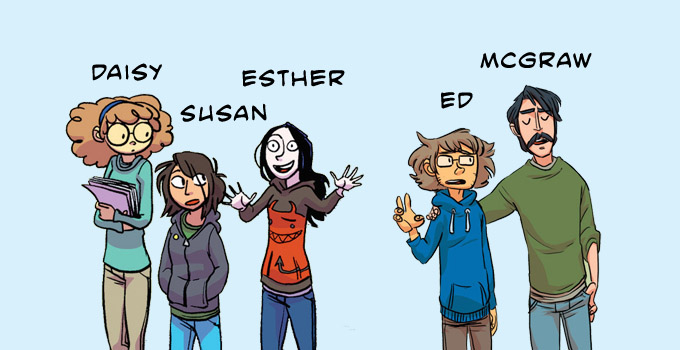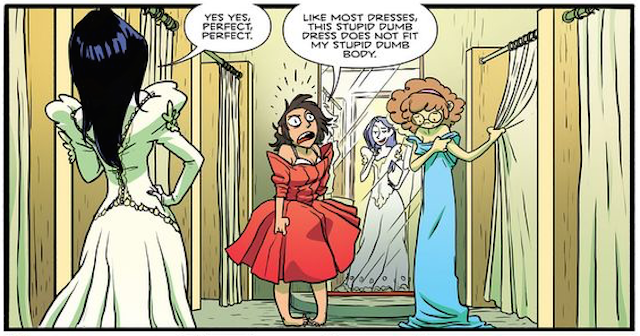“We can never go home again.”
What if destiny doesn’t exist? What if evil isn’t supposed to be, and it’s actually just an unnatural anomaly? What if a single, random bolt of quantum lightning tore a hole in the fabric of reality, a single fluctuation ripping its way through time and space at trillions of points all at once? What if countless catastrophes and tragedies throughout human history could all be traced back to a rogue flash of chaotic energy that had just as much of a chance to never have come into existence?
And what if you knew where that fluctuation began? What if you discovered the origin point of every disaster and war and unimaginable horror to ever have occurred? What if you could travel to the advent of all that is unholy and see it with your own eyes? What if you knew how to stop darkness from ever coming to be? What if you could kill evil?
There are so many questions and so few answers, overwhelming uncertainty and also confidence in the minutes before launch when I pray to a God I’ve never believed in because everything science taught me might be a lie. When I was a child, I wanted to believe in something greater, a benevolent force watching over mankind that nonetheless let us make our own mistakes and hopefully learn from them. What a fool I was, thinking there was an easy way out – existence is chaos, and it’s arrogant to believe something as simple as God could design something so erratic and expansive, as though omnipotence would ever be so wise. I understand truth is subjective, that the universe is infinite and also ever-expanding – this is my opportunity to prove it, that reality is nothing more than random chance, that everything evil is just the result of an unbalanced equation waiting to be solved before it becomes a problem in the first place.
I want to kill evil, cut its head off before it learns to speak, end every nightmare before they had the chance to be born, ignite shadows in their infancy, and erase the very idea of war before it came to pass.
It started with the frequency, the one we found hiding throughout human history with the same signature wherever we looked. For how vast the cosmos truly are, there is order to the dissonance, patterns and rhythms we can forecast like the weather – but this frequency was erratic, like a song with no melody or tempo or beat that burned our ears whenever we heard it. Keepers of the old faiths believed it divine, an immaculate signal broadcast through all of history to call the faithful home again – they were wrong. Astrophysicists and cosmic etymologists claimed it was a upper-dimensional message from the distant future, an indecipherable beacon hurtling backwards through space-time – they were also wrong.
The frequency is a splintering singularity, a quantum fluxuation affecting everything all the time as an amorphous, semi-sentient conduit that both is and isn’t – and we found where it all began, the moment when evil came into existence and spread forth like the virulent plague it would eventually grow to become. We all know what we signed up for, that what we are doing means forcing the universe to bend to our will, and that no one will ever know the sacrifice we are about to make. But it doesn’t matter, now, because none of us could walk away knowing we could save everything – what’s five lives weighed against the corruption of an entire universe? I’ve been to space before, but it never felt like this, never so freeing and absolute.
We see thing we shouldn’t, things no one was meant to witness. We passed by the advent of society and law and goodwill, glimpsed the first fire built on a cold night with death waiting to pounce and the great beasts that roamed our planet millennia before man ever came to be. We watched prehistoric amoeba seed life on Earth – and then we keep going. We witness the cycle of life amongst the stars, alien species achieving advanced utopian societies, then back further to their earliest days, back through eons and epochs and all matter of inconceivable wonders, each worthy of a lifetime of study but that we only see for a single moment before they disappear into history.
Metrics of time are meaningless now, and not just philosophically. Some days, my hair is thin and grey, my skin old and weathered, and I can feel the pain coursing through every inch of my body. Other days I feel decades younger, stronger and more awake than I’ve been in years. I try to hold onto those feelings; one I thought I’d forgotten after so much heartache and pain, the other I never thought I’d be lucky enough to feel. But every time I wake up, it’s like everything that came before didn’t happen, as though my memories are just stories and I have to learn how to be me all over again. I wish I could blame the mission, but what good would that do?
It started to feel like we’d never get there, that the ship would just keep going and going until we all died, one by one. I wondered if something was missing, if there was a component we weren’t aware of or a variation we couldn’t compensate for; the farther back we went the more we slowed down, like some invisible force was keeping us from making it over the last horizon that just kept moving further and further away.
Then we saw stars, swimming in the air around us – just tiny pops of energy in all different colors, buzzing and flitting around one moment then gone the next. No one said anything; we just stare in silence, listening to the song even though there’s no music playing. Then it was too much, and I reached out to touch what must be providence at the end, the light to show us the way because it has been so dark for so very long.
Ryder holds wife one last time and reminds her that even when she doesn’t remember him, he’ll still love her. Freya plays a final show at the Met, arrangements that bring the entire house to tears, knowing that what they are hearing is beyond anything anyone has ever heard or will ever hear again – it’s perfection, and she feels it. Francis asks the question weighing on her soul her entire life, faithful now that the answer will be true – it scares her more than she could have possibly imagine. Rustin admits the truth, holds his breath in a that moment stretching forever in a microsecond, and he finds what he is looking for. It’s a moment where anything is possible and nothing is, too, because I don’t see anything – just the void for as long as I can remember and no time at all.
And now we’re here, at the advent of all things.
Dawn of the first day when existence becomes in the blink of an eye, time slows down and each nanosecond is an epoch. In the first, the stars are born in fiery forges of light and wonder. In the second, gravity forms and bends and splinters and folds. And in the third, the essence of sentience snaps into existence, aimless and without form floating through a virgin ether, nothing more than the will to live. Within this moment, the very first moment to ever be, all of reality comes into being; it is nothing less than sublime. And in the next moment, we thought we saw the singularity, the nearly-imperceptible thing that grows and mutates and festers and will one day birth all that is wrong in this existence. It is the spark of eventual darkness, primordial terror writhing in the abyss so far from anything warm and understanding, the purest form of evil we have come to slay.
“We were wrong – you could spend ten thousand lifetimes doing this, and you wouldn’t come even remotely close to affecting anything. We were wrong.”
We always knew it was a quantum frequency of an erratic and unstable nature, so we compensated and made adjustments for the variables of its quasi-compositional state. And that was the joke – we understood how the universe worked until we forced our own ignorance. Time isn’t real, but effect is everything, and our cause smashed its meaning to dust. We wanted a foe, something we could hit and strangle and beat into submission through sheer force of will – how foolish we must have seemed, so desperately foolish.
Just being there changed everything. From the distribution of the first cosmic dusts and the angle of this reality’s first physics, to the bending of matter and the life altered because of it – our presence was the effect, the only effect. We were the singularity we thought we’d executed.
I started laughing. It was reflexive – such a dark joke, so intensely Baroque, I couldn’t stop myself. It was just so damn funny how sure we all were, how confident we must have seemed – all of us, just staring at the universe like it owed us something after we tore it apart and tried to murder a cosmic force of nature only to see the shape of ourselves in the evil we wanted to kill.
And it’s funny because it’s true – we let go of everything human about us except our contempt for evil, stripped away anything but blind hatred for a concept we inadvertently created because we are flawed. Stuck here at the moment of conception, we let our anger and fear and hate and everything else dark inside us come forth, and we called it righteousness without a hint of irony.


